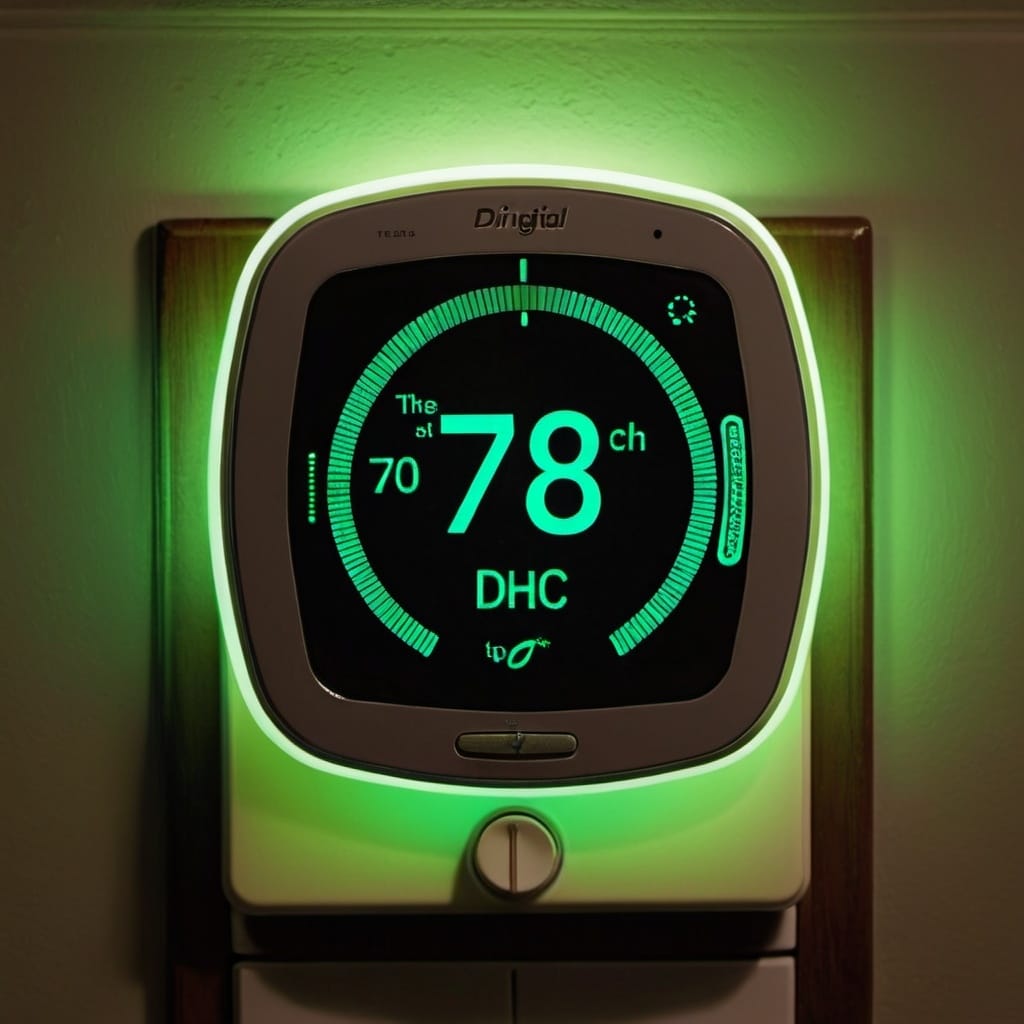HB 79: Energy Efficiency or a Backdoor for Smart Grid Proliferation?

BY NICK ROGERS
CHARDON - House Bill 79 – presented by sponsor Bill Seitz (R - Cincinnati) as legislation that will “Ensure the availability to consumers of adequate, reliable, safe, efficient, nondiscriminatory, and reasonably priced retail electric service” – has been the topic of much debate between politicians, energy companies, and consumer advocacy groups. Proponents of the bill say it will save consumers money by encouraging and subsidizing the purchase of more energy-efficient appliances. Opponents claim it will limit customers’ energy-obtaining choices while promoting dangerous, electromagnetic frequency (EMF)-emitting devices such as Smart thermostats. The bill – according to a source within the West Chester (Ohio) Tea Party, could be up for a House vote as early as this coming Wednesday.
Bride Rose Sweeney (D – Westlake) supports the bill.
“Ohio doesn’t have time to wait for the market alone to drive energy efficiency changes,” Sweeney said.
The legislation, she claims, would work by “…incentivizing Ohio utility companies to create new, voluntary energy saving programs by which they can offer their customers discounts on energy efficiency products and services.”
Rob Kelter, a senior attorney at the Environmental Law and Policy Center (ELPC), also advocates for HB 79.
“Here’s how it works,” said Kelter. “Utility-run energy efficiency programs offer customers discounts and rebates on appliances, lighting, Smart thermostats, and weatherization to encourage them to replace old, inefficient appliances.”
He points out that the bill will tack on a $1.50/month fee to consumers’ energy bills, but says that it will “…save customers more than that in the long run.”
Opponents of the bill (and the bill’s predecessor HB 389) include the Ohio Consumers’ Counsel (OCC). In a May 3, 2023 speech before the Public Utilities Commission of Ohio (PUCO), OCC legislative liaison Nicholas Stallard said, “Energy efficiency is a good thing. It is also something that Ohioans obtain in the competitive market from businesses. Ohioans can obtain energy efficiency without government legislation, without the involvement of monopoly utilities and without the charges on their electric bills that will result from HB 79.”
Kelter claims that the $1.50/month charge is “capped,” but the OCC begs to differ. Stallard said, “The claimed $1.50/month cap is not a cap. By the terms of the bill, it can be exceeded by four different charges to consumers.” One of those charges, he said, is that of “lost distribution revenues.” Lost distribution revenues – according to state-wide non-partisan activist group Southwest Ohio for Responsible Technology (SWORT) – “…allow utilities to be compensated for cash flow that’s been diminished by less energy usage…”
Much of this cash flow comes from riders (added monthly fees) that have been routinely requested by energy companies and routinely granted by PUCO. These riders – often justified under the guise of grid infrastructure improvement – have been set up in such a way that customers already attempting to save energy are greeted with disproportionately high monthly bills none-the-less. SWORT’s Vince Welage conducted a multi-year study of Ohioans’ growing energy bills, with utility riders as his main focus, and a relevant interview with Mr. Welage can be found here.
The OCC – no stranger to opposing PUCO and “Big Energy” – filed a request with PUCO to deny FirstEnergy’s “Grid Mod II” plan. The request was denied. The plan, if approved by PUCO, will allot $421 million for “grid modernization” and “operation and maintenance expenses” over the next decade (fees that will be tacked on to customers’ bills in the form of additional riders).
Ohio Edison, Toledo Edison, and The Illuminating Company (all FirstEnergy companies) recently reached an agreement on Grid Mod II’s terms with multiple parties which included, perhaps coincidentally, Kelter’s Environmental Law and Policy Center. Grid Mod II – perhaps coincidentally as well – offers a Smart thermostat rebate program in line with that laid out in HB 79.
Another opponent of the bill is the group Americans for Prosperity Ohio (AFP-OH). The group states, “…AFP-OH outlines several concerns with the bill, noting that it is not a voluntary program because consumers must opt out of the program, rather than opting in. AFP-OH also points out that the bill does not include a clear cost cap and limits consumer control over ‘Smart meters’ in their homes and businesses.”
EMF radiation from Smart meters is of major concern not only to those who are electromagnetically sensitive (a condition recognized under the Americans with Disabilities Act), but for all citizens – like those comprising SWORT – who are aware of the biological harm caused by EMF-emitting devices such as Wi-Fi modems and cell towers. The Secure 5G and Beyond Act of 2020 (now law) and the yet-to-be-passed HR 3557 (the American Broadband Deployment Act), like HB 79, seek to bolster an already-ubiquitous wireless infrastructure.
According to PUCO, HB 79 would “…Encourage innovation and market access for cost effective supply and demand-side retail electric service including…Smart grid programs, and implementation of advance metering infrastructure (AMI).” Smart cities are presented as utopias of convenience and user specificity. Detrimental health effects from wireless radiation is almost always left out when being discussed by those pushing the agenda.
In addition to health concerns regarding Smart meters, many opposed to the technology, like Welage, have pointed to their hackability and the privacy issues they present. PUCO states – in the name of “customer choice and grid modernization” – that HB 79 would further the “…sharing of customer usage data with customers and competitive suppliers.” Depending on who you ask, this could mean greater customer service and faster response to power outages, or it could mean greater impingement on our dwindling 4th amendment rights.
Kelter, in a letter to the editor for the Toledo Blade, made it clear that he believes HB 79 should make everyone happy. “Utilities win. Ohioans win. Toledoans win,” he said. The latter part of that statement likely will not sit well with Toledo resident Greg Allen, a man who has long been enveloped in a harrowing fight (ultimately a futile one) to keep a Smart water meter out of his home. Toledo residents are not allowed to opt out of Smart meters. Many Ohioans are allowed this “privilege,” but with a mandatory up-front fee (typically around $100) and recurring monthly fees (typically around $30).
HB 79 – ostensibly a bill promoting energy efficiency and consumer choice – may actually be quite the opposite; one that forces us closer to the Agenda 2030 reality the likes of the United Nations and the World Economic Forum are attempting to craft for us. And while many supporters of the legislation may very well have earnest motives – like Christian faith leader Jack Joseph of Westerville, OH – it’s hard for many Ohioans to believe in the integrity of bills like this when the parties pushing for it are the very parties who were deeply involved in the HB 6 bribery debacle and/or the knowingly unlawful additions of fraudulent electric bill riders in recent years.
Joseph stated, “I believe being good stewards of the Earth God provided is not just an ethical issue, but a biblical one. We also must defend the health of God’s people, especially his children. Because of this belief, I support House Bill 79, the energy efficiency bill.” We all want to be energy-efficient. We all want to protect the planet and our personal health. The question is, does HB 79 actually work toward these goals?
It's up to Ohioans to decide where they stand on HB 79. It’s a bi-partisan bill, so politics should not cloud decision-making. It comes down to dissemination of the facts and recognition/analysis of how much government/corporate control (“Behavioral energy savings”) one wants over the way they use energy and the amount they spend to do it. Do you consent? Or, perhaps better said, do you opt-out?
Thank you to Monique Mainsenhalter of SWORT for her tireless assistance in the creation of this and other TOR energy-related articles. SWORT urges Ohioans opposed to HB 79 to contact Bill Seitz at (614) 466-8258 and House Speaker Jason Stephens at (614) 466-1366.




